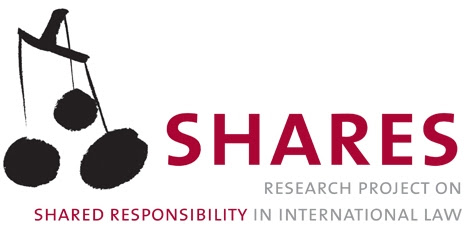Posted by: Stephens Tim
Symposium on the Law of the Sea and the Law of Responsibility, cross-posted on Opinio Juris
Natalie Klein has drawn attention to a longstanding weakness in those fields of international law, including international environmental law, devoted to serve collective interests, in matching obligations with rules of responsibility for their breach. The law of state responsibility applies in a fairly straightforward way to situations where there is an obligation under a treaty to protect the environment, that is violated by a treaty party, with clear impacts upon another party. However, as Klein points out, when it comes to iconic whale and shark (and indeed other) species found on the high seas the responsibility situation may be far from straightforward, and this can frustrate efforts to enforce conservation rules.
In the Whaling in the Antarctic Case before the ICJ, Australia contends that Japan has breached the International Convention for the Regulation of Whaling (ICRW) because it is engaging in commercial whaling, in contravention of the moratorium adopted under the ICRW. Australia has not made express its arguments on standing, such as by asserting any special interest in Japan’s conduct above and beyond that of any other party to the ICRW. It is difficult to see how there is any such special or defined interest. Were the ICJ to apply the conventional standing approach this would seem to disentitle Australia from raising this complaint in the ICJ. It could also rule out any challenge by any state against Japan’s whaling program. The net effect is that there could be no party at all able to invoke the potential responsibility of Japan under the ICRW.
This is a clearly undesirable situation. As Klein observes, whales may not have their own legal rights (but of course there is a tremendous philosophical literature on precisely this point). But there is a mechanism, set out in Article 48 of the International Law Commission’s Articles on State Responsibility, for states to seek to defend common environmental values. The International Tribunal for the Law of the Sea referred to Article 48 in its Advisory Opinion on the Deep Seabed and concluded that where there is damage to the environment from mining the deep seabed beyond national jurisdiction ‘each…party [to the UN Convention on the Law of the Sea] may…be entitled to claim compensation in light of the erga omnes character of the obligations relating to the preservation of the marine environment of the high seas and in the Area.’ (at [180]). And the ICJ in Questions Relating to the Obligation to Prosecute of Extradite also concluded that any party to the Torture Convention may invoke the failure of another party to comply with the obligations erga omnes partes established by it (see [68]-[69]).
It remains to be seen how the ICJ will approach these issues in the Whaling in the Antarctic Case, however it is to be hope that the Court will refer to and endorse Article 48 of the ASR which provides an important avenue for public interest international environmental claims to be pursued.
